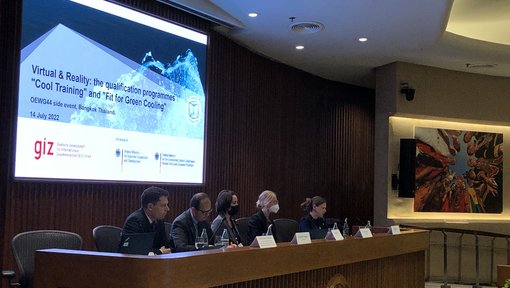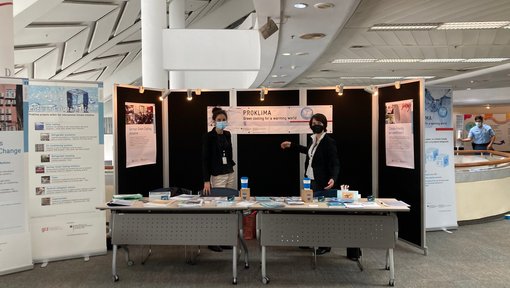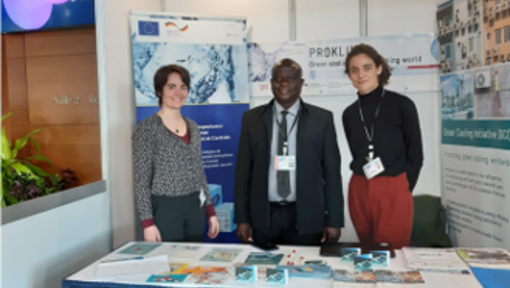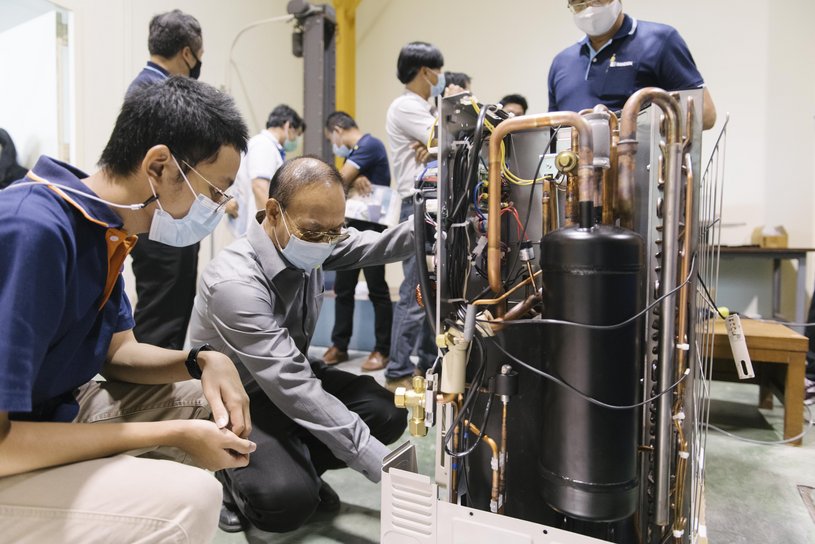Back-to-back with the OEWG in Bangkok, a two-day workshop on inventories and MRV systems in the RAC sector took place
30 participants from 14 countries, comprising national ozone officers and focal points from respective departments for climate change or energy efficiency, learned about methodological approaches and discussed benefits and challenges for setting up a sector MRV system. During the first day, the development and use of RAC greenhouse gas inventories were illustrated, including the exchange of hands-on experiences among the participants. So far, 14 countries worldwide have developed a comprehensive sector inventory with the support of GIZ Proklima. How to move from a one-time inventory to a continuous and institutionalized data collection was subject to the second day. Theoretical inputs tackled aspects related to the construction of a MRV system, which were further highlighted in a group work session. In addition, United for Efficiency (U4E), (opens in a new window)part of the UN Environment program, presented their work on a product registration database as integrated component of such a system.
To support the development of mitigation targets and mobilization of related funding, it is most important to undertake comprehensive stocktaking of the status-quo and enable the transparent monitoring of mitigation action. A sector MRV system not only facilitates to comply with the (inter-)national emission reporting requirements but also supports the design of suitable climate mitigation policies and allows to evaluate their effectiveness.
The workshop was organized by GIZ Proklima projects on behalf of the Federal Ministry of Environment, Nature Conservation and Nuclear Safety (BMU): Cool Contributions Fighting Climate Change (C4), (opens in a new window)Green Cooling Initiative II (GCI II) and Management and Destruction of ozone depleting substances in ODS Banks. (opens in a new window)

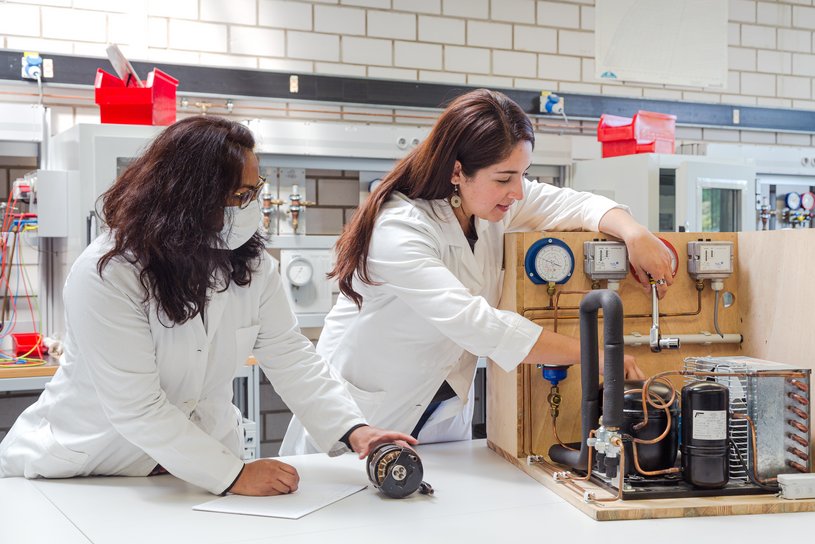 Image: giz / Andreas Döring
Image: giz / Andreas Döring